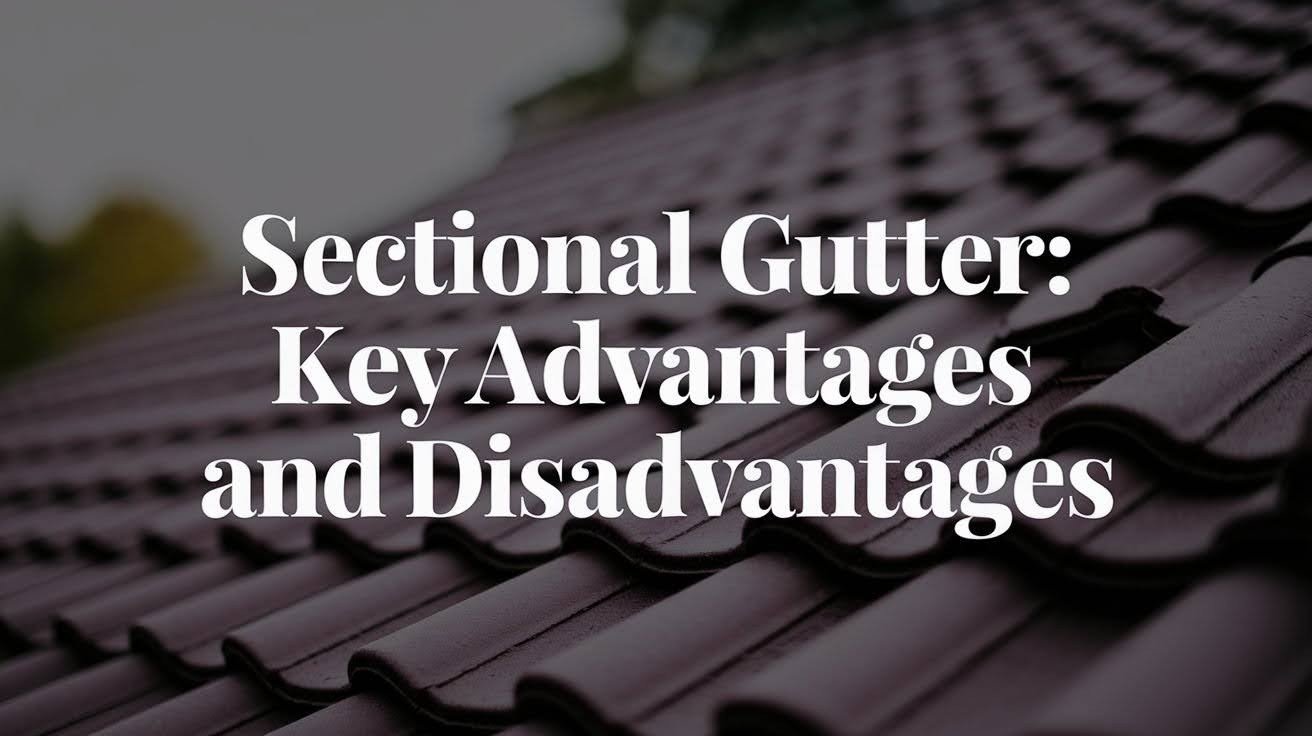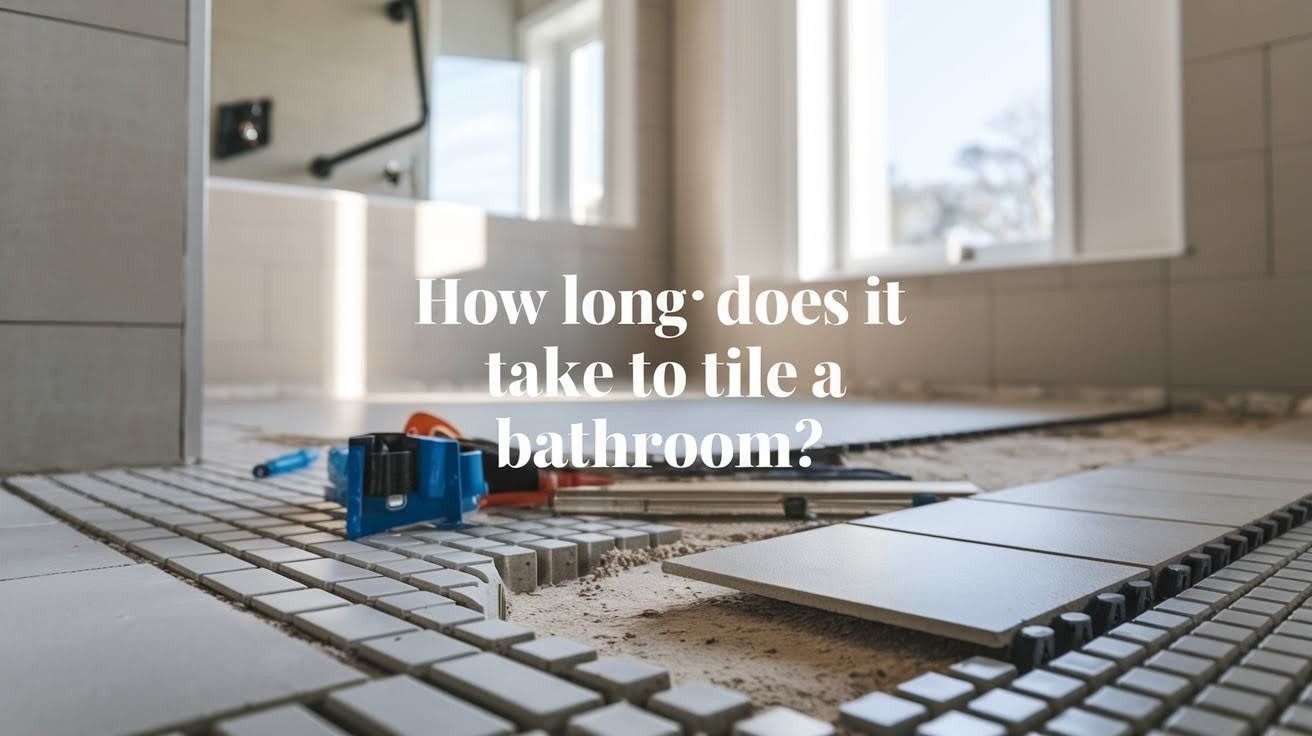Ever look around your kitchen and think, “Didn’t I just clean this place?” You’re not alone. In my five years as a home service consultant, I’ve helped more than 200 families pick the right cleaning schedule.
The big question is simple. Weekly, bi-weekly, or monthly? Pick wrong and you either waste money or live with constant stress.
This guide breaks down bi-weekly cleaning. I’ll show what’s included, who it helps most, and how it stacks up against other options. You’ll even hear real client examples. No sales pitch. Just clear advice from real homes with real mess.
What Is Bi-Weekly House Cleaning?
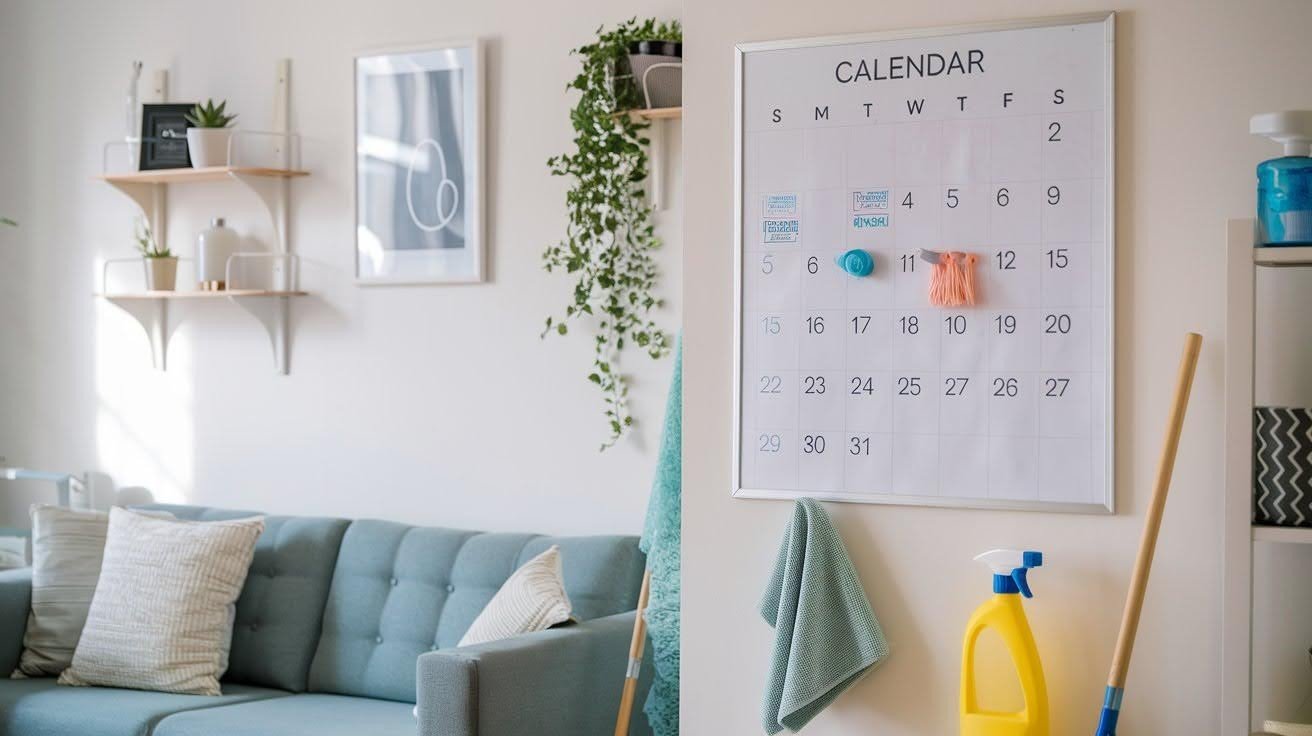
Bi-weekly cleaning means professionals come to your home every two weeks. That’s 26 visits per year, spaced exactly 14 days apart.
Understanding the Bi-Weekly Cleaning Schedule
Most people think bi-weekly means twice a week. It doesn’t. Bi-weekly cleaning happens every 14 days, which gives your family time to live normally without things getting too messy.
This schedule fits busy families perfectly. You get professional cleaning without the high cost of weekly service.
Most cleaning sessions take 2 to 4 hours, depending on your home. The cleaners bring their own supplies and follow the same routine each visit.
What’s Included in Bi-Weekly Service?
Professional cleaning services follow a detailed checklist. Most companies use a 20-point system that covers every room in your home.
They clean bathrooms by mopping and sanitizing floors, scrubbing toilets, showers, tubs, and sinks.
Living areas get vacuumed floors and furniture, dusted ceiling fans, and polished wood surfaces. The cleaning team brings professional-grade supplies and equipment.
Health Benefits of Bi-Weekly House Cleaning
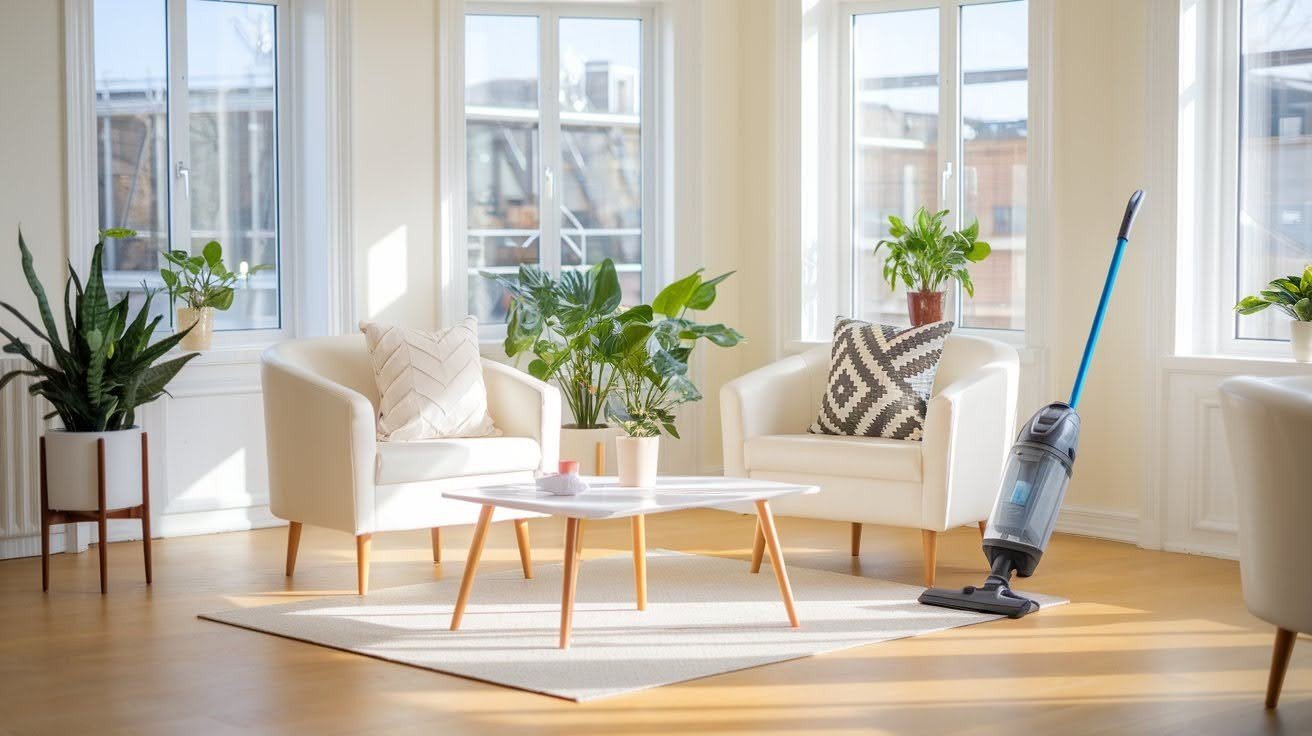
Clean homes aren’t just about looks. Regular professional cleaning protects your family’s health in ways you might not expect.
Better Indoor Air Quality Control
Dust and allergens build up faster than you think. In just two weeks, enough dust mites can gather to trigger asthma and allergy symptoms in sensitive family members.
Bi-weekly cleaning keeps these health threats under control. Professional cleaners remove pet dander and hair that regular vacuuming misses.
They also prevent allergen buildup on furniture and air vents. The consistent schedule cuts down on mold and mildew in kitchens and bathrooms, where moisture creates perfect growing conditions.
Protection Against Common Household Allergens
Dust mites are everywhere, even in clean-looking homes. They live in carpets, furniture, and bedding, where they feed on dead skin cells. These tiny creatures are major triggers for asthma and allergies.
Quick dusting actually makes allergen problems worse. Feather dusters just scatter dust around instead of removing it.
Professional cleaners use damp cloths that trap allergens instead of spreading them. They also vacuum carpets and furniture thoroughly to prevent allergens from embedding deep in the fibers.
Mental Health and Stress Reduction
Studies show that clean homes reduce anxiety and improve focus. When your space is organized and fresh, your mind feels clearer too. You sleep better in clean environments.
Bi-weekly cleaning eliminates the weekend cleaning stress. No more panic cleaning before guests arrive or feeling overwhelmed by a growing mess.
You get consistent peace of mind knowing your home is always presentable. This mental break from cleaning duties gives you more energy for activities you actually enjoy.
Bi-Weekly vs. Monthly Cleaning Comparison
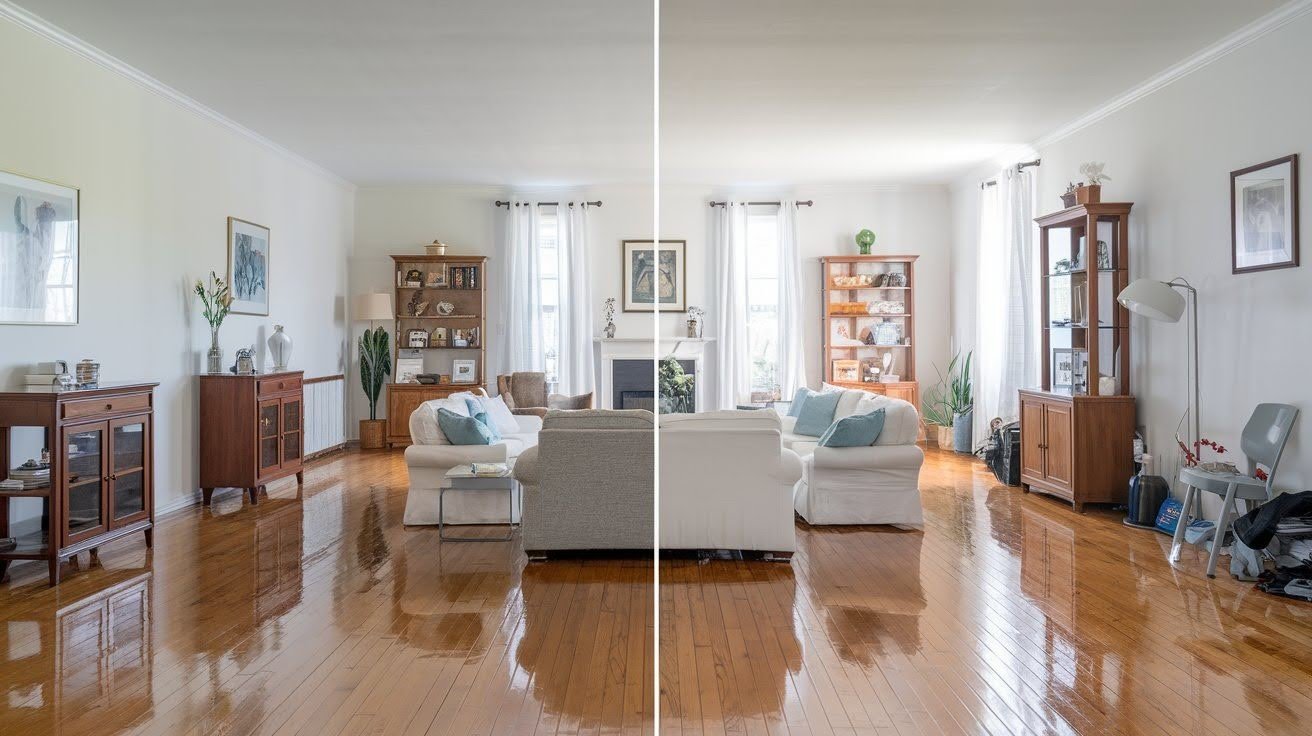
Choosing between bi-weekly and monthly cleaning affects more than your budget. The frequency impacts your home’s cleanliness, your family’s health, and your daily stress levels.
Why Monthly Cleaning Falls Short
Dust and allergens don’t wait four weeks to pile up. They start building within days of cleaning. By week three, allergy sufferers often notice worsening symptoms from accumulated dust mites and pet dander.
Monthly cleaning means you spend more time doing maintenance between visits. Your house doesn’t stay consistently clean.
You get the same thorough cleaning as bi-weekly service, but the results don’t last. By the fourth week, you’re back to weekend deep-cleaning sessions to keep things manageable.
Advantages of Bi-Weekly Over Monthly
More frequent visits mean better allergen control. Your home stays guest-ready without last-minute cleaning panic. There’s less deep scrubbing needed between professional visits because dirt and grime don’t have time to build up.
Bi-weekly cleaning protects your home’s surfaces better. Regular attention prevents permanent staining on grout and reduces wear on hardwood floors.
The shorter interval makes maintenance cleaning much more manageable for busy homeowners.
Cost vs. Value Analysis
Monthly cleaning wins on price alone. It’s the most affordable professional cleaning option. But bi-weekly cleaning delivers better value when you consider health benefits and time savings.
The investment pays back through reduced allergy symptoms and eliminated weekend cleaning marathons.
You save money long-term by protecting your home’s surfaces from damage. Many families find the time savings worth the extra cost, especially when both parents work full-time.
Home Preservation Benefits
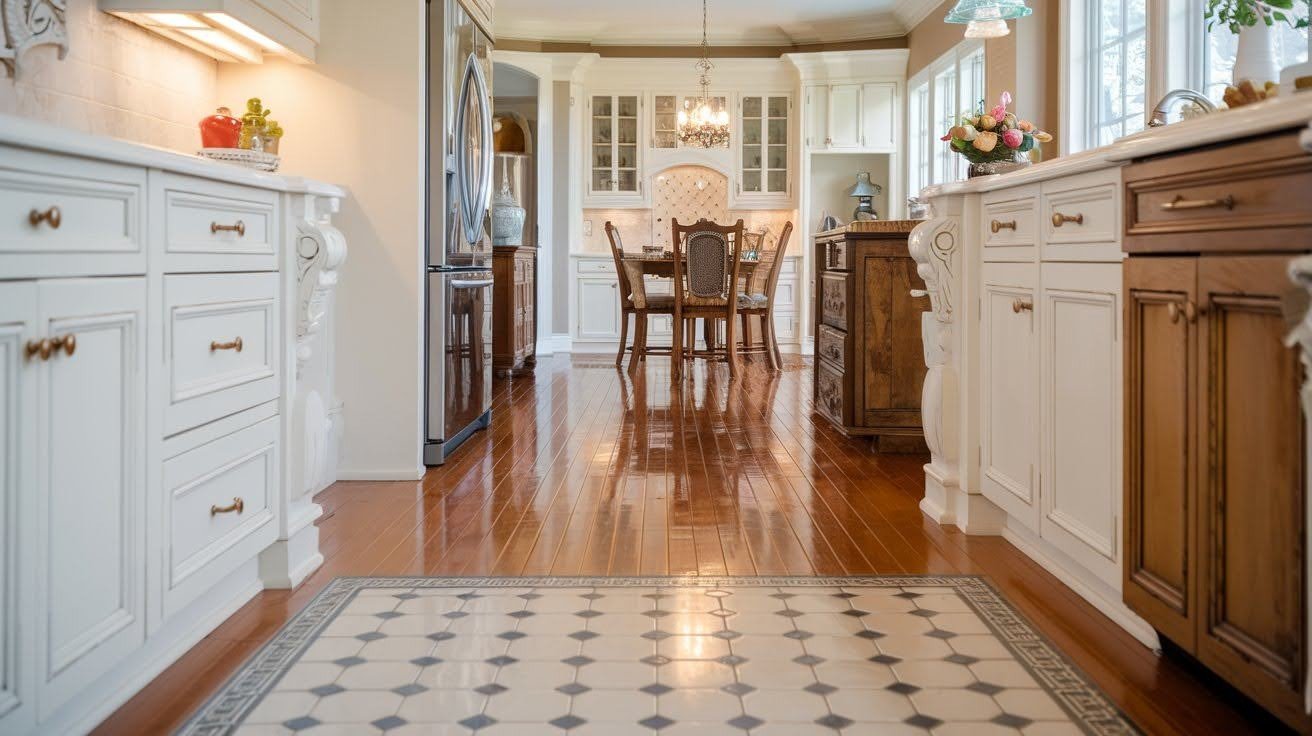
Regular cleaning does more than make your home look good. It protects your financial investment by preventing damage that builds up over time.
Protecting Your Investment
Grime, mildew, and dust actually wear down your home. What looks like surface dirt can cause permanent damage to flooring, fixtures, and appliances.
Regular professional cleaning prevents this deterioration. Routine maintenance protects your property value. Clean homes show better and sell faster when it’s time to move.
Think of bi-weekly cleaning like regular oil changes for your car – small investments that prevent big repair bills later.
Specific Areas That Benefit from Regular Care
Hardwood floors get scratched by dirt particles that daily sweeping misses. Professional cleaning removes these abrasive particles before they cause permanent damage.
Tile grout stays lighter and cleaner with regular attention, preventing expensive restoration projects. Furniture and rugs last longer when dirt doesn’t embed deeply in the fibers.
Bathroom surfaces avoid water damage and deterioration when mold and mildew are removed consistently.
Kitchen appliances maintain functionality and appearance with regular professional cleaning that reaches areas you typically skip.
Long-Term Cost Savings
Bi-weekly cleaning prevents expensive deep-cleaning emergencies. You avoid replacement costs for surfaces damaged by neglect.
Consistent upkeep maintains your home’s value and prevents small problems from becoming major repairs. It’s like preventive maintenance for your biggest investment.
Regular professional attention catches issues early and keeps everything functioning properly. The cost of bi-weekly cleaning is much less than replacing damaged flooring, refinishing grout, or deep-cleaning carpets that have been neglected too long.
What to Expect from Professional Bi-Weekly Service?
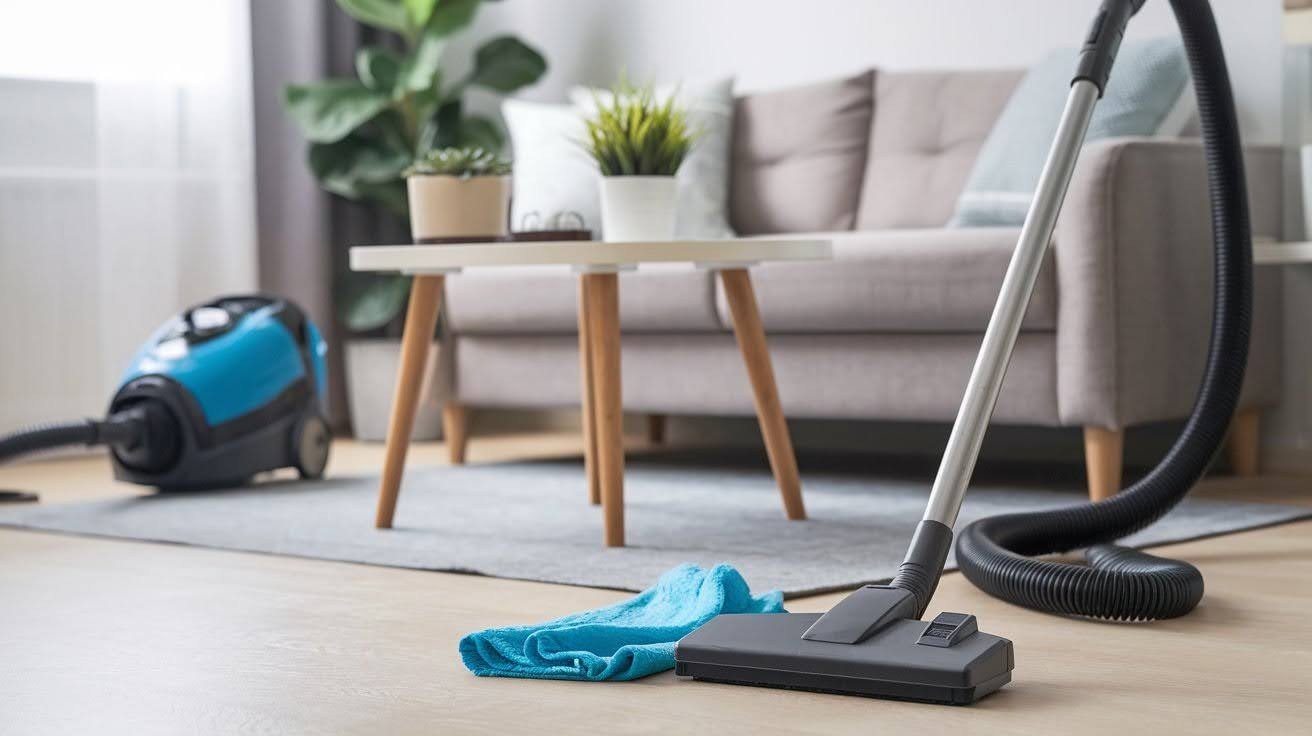
Knowing what happens during each visit helps you prepare and get the most value from your investment.
Standard Service Checklist
Professional cleaning companies follow comprehensive checklists. Most use 20-point systems that ensure consistent quality and thoroughness every visit.
Trained staff bring professional-grade supplies and equipment that work better than consumer products.
Every cleaning follows systematic protocols. Teams clean rooms in the same order and use proven techniques for different surfaces.
This consistency means you get the same thorough results whether it’s your regular cleaner or a substitute team member.
Preparation and Scheduling
Preparing your home before cleaning day maximizes the service value. Put away personal items and clear surfaces so cleaners can focus on actual cleaning instead of organizing.
Most services offer flexible scheduling that works around busy family calendars. Communication with cleaning teams ensures satisfaction.
Discuss special requests or problem areas during the initial consultation. Most companies clarify what homeowners need to provide versus what the service includes, so there are no surprises on cleaning day.
Quality Assurance and Reliability
Good cleaning services assign consistent teams when possible. This builds familiarity with your home and preferences.
Quality control measures and customer feedback systems ensure problems get addressed quickly. Insurance and bonding provide peace of mind.
Professional training standards mean staff know how to clean different surfaces safely and effectively. Reliable services have backup plans when regular cleaners are sick or on vacation.
Conclusion
Deciding on bi-weekly house cleaning comes down to your family’s needs, budget, and priorities. If you have kids, pets, or allergies, the every-two-week schedule offers health benefits that monthly cleaning can’t match.
You now have the facts to make a smart choice. Bi-weekly cleaning costs more than monthly but saves time and protects your home’s value. It works best for busy families who want consistent cleanliness without weekend cleaning marathons.
Your cleaning stress doesn’t have to continue. Whether you choose bi-weekly, monthly, or stick with DIY cleaning, you understand the trade-offs.
What questions do you still have? Leave a comment below about your cleaning situation. Your experience might help other homeowners make their decision too.
Frequently Asked Questions
How often does bi-weekly house cleaning actually happen?
Bi-weekly cleaning occurs every two weeks, or 26 times per year. This means cleaners visit your home every 14 days, not twice per week. The schedule provides consistent maintenance without the higher cost of weekly service.
What’s the difference between bi-weekly and monthly cleaning costs?
Bi-weekly cleaning typically costs about 1.5-2 times more than monthly service since you get twice as many visits. However, you save time on maintenance cleaning and get better allergen control, making it cost-effective for busy families.
Is bi-weekly house cleaning worth it for small families?
It depends on your priorities and budget. Small families with pets, allergies, or busy schedules benefit most. Single-person households with minimal mess might find monthly cleaning sufficient, while families with children often need the bi-weekly frequency.
What should I do to prepare for the bi-weekly cleaning service?
Clear surfaces of personal items, put away clutter, and secure valuables. Most services bring their own supplies and equipment. Communicate any special requests or problem areas during your initial consultation for the best results.
How does bi-weekly cleaning compare to doing it myself?
Professional bi-weekly cleaning saves 4-6 hours every two weeks and uses commercial-grade equipment and products. DIY cleaning costs less but requires your time and energy. Consider your schedule, physical ability, and cleaning preferences when deciding.



